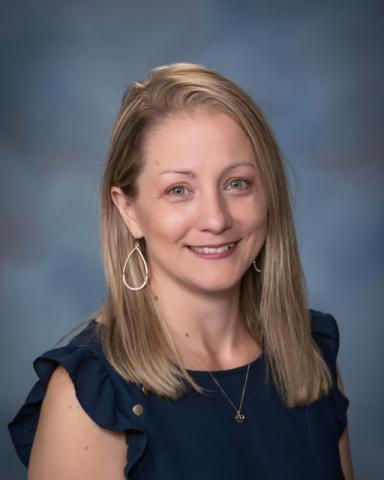When 24-year educator Erin Henry decided her next step was administrative leadership, she began researching programs that would prepare her for the role. Henry wanted a program that would be manageable for a working professional and parent and would also be challenging.
“I wanted a program that was rigorous,” she says. “I didn't want to throw money at a degree and feel like I'm throwing it away; I wanted to learn.”
The M.Ed. in Educational Leadership at the University of Louisiana at Lafayette seemed to be just the right fit.
"I looked at a lot of different programs, and I feel like UL Lafayette’s program really offered the most value," she says. “It was designed for working professionals — rigorous and challenging but also accommodating.”
Now that Henry is preparing to graduate with her Master of Education, she says got what she came for — not only a degree, but an education.
Relevant courses
Students enroll as a cohort in the Master of Education in Educational Leadership each Fall. Joining as a cohort — and the program’s hybrid format — was appealing to Henry. She found she brought a unique perspective to her cohort, both as a private school educator and administrator.
Although she could not officially use the title, Henry has served as assistant principal at Catholic High in New Iberia for two years — the entire duration of her master’s program. Filling that role meant she could link her coursework directly to her position and her position to her coursework.
“One of the things that I was told when researching programs was that what you learn in class one night, you could go back and use immediately the next day. I found that to be very true,” says Henry.
Legal, Regulatory, and Ethical Issues — EDLD 502 — was of special interest, but Henry says all of her courses were impactful, from developing gap analyses to vision plans and school improvement plans.
“I loved them all for different reasons,” she says.
Manageable program
 Henry’s role meant she not only had a different perspective than many in her cohort, she also had different responsibilities.
Henry’s role meant she not only had a different perspective than many in her cohort, she also had different responsibilities.
However, the program's hybrid format made it possible to maintain a balance.
“I had extra duties such as game supervision,” she says. "Someone's got to be the person to supervise and to support the officials if there's an issue. So that was a little time consuming early on but nothing I couldn't handle because of the way that the program was designed.”
Students take two courses each semester in the M.Ed. in Educational Leadership. Courses alternate each week, with students meeting for one class and completing coursework for the other course online.
The hybrid format, along with her husband’s support, helped Henry remain present during a pivotal time in her daughter's education.
“I was going through the program during my daughter's junior and senior years of high school, and she was a very involved senior between clubs and captain of the dance team and studio dance,” says Henry. “So, personally, there was a lot that I was juggling, but I still felt like the way the program worked allowed me to be successful in those areas, as well.”
Accommodating faculty
Not only did the program design facilitate Henry’s success, but support from professors — many of whom are or have been administrators — was also significant.
“Communicate with your professors. They offer all their contact information for good reason,” she says. “The professors were wonderful as long as I communicated with them ahead of time. They were very supportive and very accommodating.”
Henry also had buy-in from her high school principal.
"My principal was very supportive,” says Henry. “She knew which days were reserved for class time and structured my extra duties accordingly."
And just as attaining her degree was a priority, so is celebrating.
“That day is our senior orientation day, but because [my principal] is very supportive, she said, ‘We will man the ship without you. We need you to attend your graduation.’”